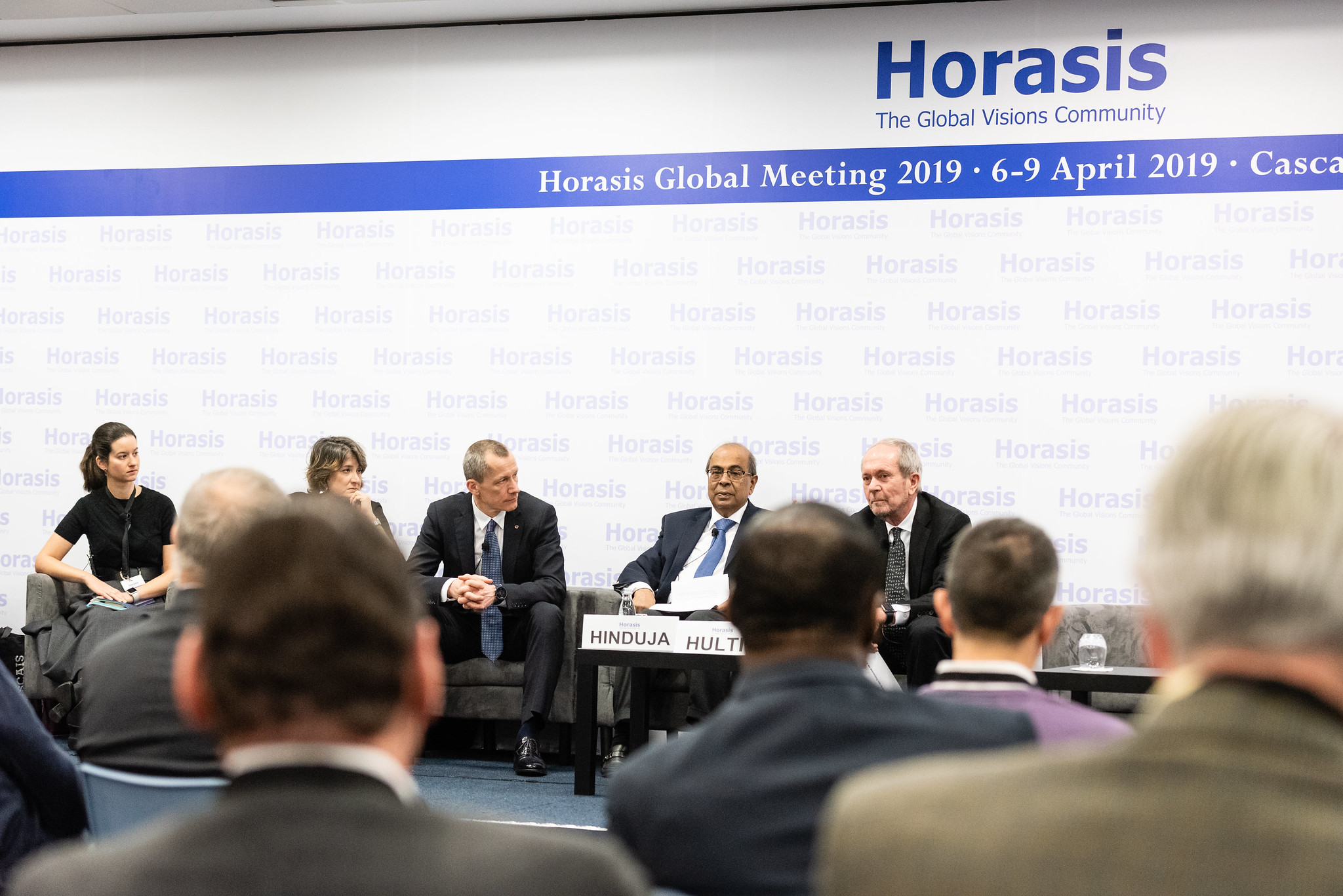Fostering Shared Humanity in Times of Crisis
COVID-19 has once again shown that countries must cooperate in times of stress. While countries mostly acted in isolation in trying to contain the virus, there was strong cooperation to develop COVID-19 vaccines in record time. And this bodes well for a fractured world – that even amid isolationism and sometimes even hostile exchanges, the immediate threat was prioritized and collaborative efforts were made towards finding solutions.
Will global vaccine cooperation result in cooperative peace across the world? How can we use this crisis to generate a new start? Are we matured enough to wish for a better world and maybe achieve it?
It is with the sincere desire to address such concerns that Horasis is organizing the Horasis Global Meeting on 08 June 2021. The virtual event will see participation from a diverse range of people, spanning members from governments, businesses, academia, and the media. The goal is to deliberate on issues that are threats to world peace and arrive at solutions that can ensure a safer world.
Collaboration Allowed for Rapid Vaccine Rollouts
If there is one aspect that the COVID-19 pandemic has laid bare, it is the indomitable human spirit. Vaccine development in the past was always considered a long-drawn process, that often took several decades to perfect. However, in the present scenario, collaboration between scientists, doctors, approval boards, manufacturers, and regulatory agencies ensured an effective vaccine roll out in record time. Besides, large scale vaccine manufacturing facilities operated parallel to clinical trials, allowing production to scale up quickly.
Emerging economies such as India was among the front runners in vaccine development. It even exercised ‘vaccine diplomacy’ by gifting substantial doses to Bangladesh and Bhutan. Unfortunately, India’s vaccine leadership coincided with a massive second wave of the pandemic that has overwhelmed its already fragile healthcare system.
However, what must be highlighted is the collaborative efforts from experts worldwide. It is these efforts that culminated in the vaccine becoming available within a year of the outbreak. Innumerable lives have been saved as a result, all the more so among the elderly demographic. If such cooperation can yield successful results in healthcare, surely world peace too cannot be a far-fetched ideal. There is pressing need for world leaders to embrace a route that fosters shared humanity.
Prioritizing on Higher Ideals
For far too long, nationalism has been accorded more than its fair share of importance. If anything, nationalism has often been used as a front to veil administrative shortcomings and divert public attention. The rise in populist governments has only served to further the nationalism rhetoric. This stance is futile; as it only ensures short-term electoral gains. For a country’s shared progress, the obstacle of populism can only be countered by greater cooperation.
It is time to prioritize on higher ideals – of collaborating for the greater good, laying focus on world peace and seizing the present moment to start afresh. Typically, it is military spending that is equated with greater clout in the world arena. The country with the higher military spend is able to exercise more dominance or exert more bargaining power in its favor. But this route has only led to more animosity and ill will among countries. Surely, a more humane approach can be considered – one that can also earn recognition for a country.
Bhutan’s example is certainly one to draw inspiration from. Its administration does record the traditional markers of development such as GDP and GNP. In addition, it also measures GNH or Gross National Happiness of its citizens. What the kingdom has done is prioritize on the more humane, as opposed to only quantifying development based on economic indicators. In the frenzied pace that much of the world seems to revel in, there is prudence in slowing down and taking stock. Are economic pursuits alone, with scant regard for human life, really a sustainable way forward?
A New Start
The pandemic has been a harbinger of negativity. Economic losses continue to mount, death tolls show no signs of abating and across the world, there is an air of gloom. But amid this grim backdrop, there are also opportunities that can be seized. This is the ideal moment to take stock of strategies both on domestic and international fronts that have missed the mark. Leaders must acknowledge their policy errors and use this moment to make fresh beginnings. The onus is on our leaders to ensure safer communities, reduce the chances of future pandemic-like situations, and place humanity at the center of all decision making.
Photo Caption: A man receives the Pfizer vaccine at a drive-in vaccine center in Los Angeles.



